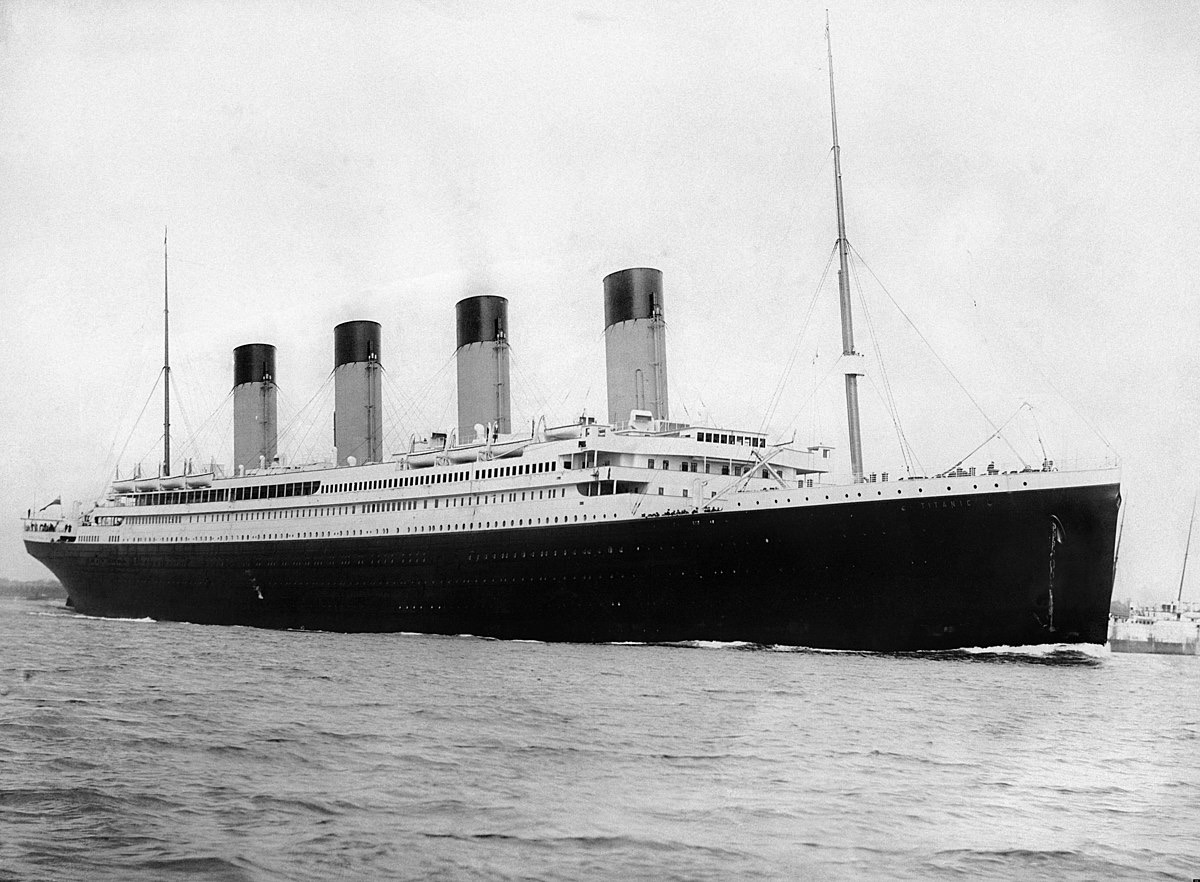Memories Of The Titanic

Dear friends,
What is a human life worth? When you consider the wars, persecutions, famines and diseases throughout history, the question seems a rhetorical one: human life is worth nothing.
On YouTube there is a video of interviews with two survivors from the Titanic, the ship which hit an iceberg and sank on its maiden voyage to New York in 1912, with the loss of over 1,500 souls. Key aspects of the ship’s final hours remain in our collective memory. Women and children were placed in the lifeboats first. The band played while the Titanic sank. The captain went down with the ship. All of these cultural echoes are familiar to us today, over a century after the tragedy.
The two women survivors, who were filmed in 1956, remember being placed into lifeboats - in one lifeboat there were 72 people. One of the survivors said that “everybody was most cheerful and everybody was helping one another.” The sea that night was as still as a mill pond. As the ship sank, the band played “Nearer my God to Thee.” Both saw the ship sink.
How does one explain the abiding fascination with the Titanic? There have been worse shipping disasters, but none have captured the popular imagination in quite the same way. The Titanic was a microcosm of the class system which characterized British society. The opulence of the first class accommodation contrasted sharply with the basic third class cabins.
The sinking of the Titanic also tells a remarkable story of self-sacrifice, of men willing to do the decent thing and give up their lives for the women and children. Was this an example of old fashioned chivalry, or something else? In a society as heavily Christianized as pre-war Britain, how far did the actions of those on board reflect the Christian values of that generation?
The idea of self sacrifice is intrinsic to our Christian faith. After all, it is how Christ showed his love for us. Jesus said, “no one has greater love than this, to lay down one’s life for one’s friends (John 15:13). For many on board the Titanic that night, the value of a human life was not measured by their ability to survive, but by their willingness to help another in dire need, even at the cost of their own life.
This is why the story of the Titanic resonates still. Certainly it offers a lesson on the folly of human pride, of thinking that a ship could be built that was “unsinkable.” However, this is not why we keep the memory of the Titanic alive. What uplifts our spirits are the stories of personal heroism, of people helping each other, even in the face of death. The fate of the Titanic provides a sobering reminder that death may come at any time. How we react in the face of death will, to a certain extent, reflect our trust and faith in God. The lesson is to be prepared for such an eventuality.
The correct answer to the original question - what is a human life worth? - is “everything.” A human life is worth everything. God, who knows the number of hairs on our head (Luke 12:7), knows and loves each one of us more than we know. In the face of a tragedy like the Titanic, this may be the hardest lesson to accept. God’s love transcends our fears and anxieties and even transcends death. That is what Christians believe, for whom life and death are two sides of the same coin.
Father David


0 Comments
There are no comments.
Stay Tuned
Sign-up for David's newsletter